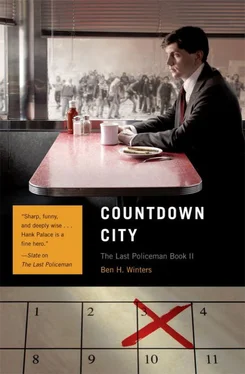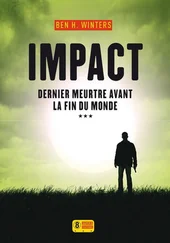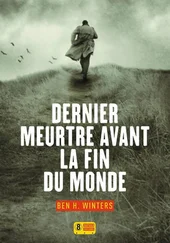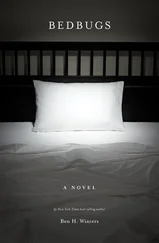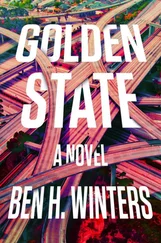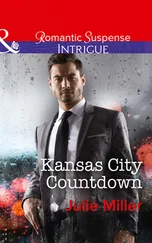The low murmur of the room is beginning to bubble up again, people leaning across one another to whisper and nudge, people exchanging questioning expressions. I ignore them, keep my eyes locked on Julia Stone.
“Um, yes, point of order,” says the vice, while the vice vice stands stonily, arms crossed. “What are you talking about?”
“This man has entered our space on a false pretense,” says Julia, and points at me with one steady finger. “He’s not here to take part in our community; he’s here to infiltrate it. He is on a mission to hunt down another human being like a pig or a dog.”
Silence, then, the room suddenly alive with tension, everybody staring at me or at Julia or back and forth, me to her. I feel it again, the dread gut-level certainty that these people could kill me: that I might die here, in this room, and no one the wiser. And at the same time, nevertheless, I am feeling these wild waves of excitement, looking at the woman for whom Brett named a pizza, the woman who drew him from Concord and from his wife, the woman I went looking for and found. I want to take a picture of her and send it to Detective Culverson and say, “See? See?”
“You don’t understand where you are,” Julia tells me. “This is a new world. We have no room for police-style tactics here.”
“I’m not a policeman,” I say.
“Oh, yeah?” she says, “But you are police-style, aren’t you?”
“What is going on, Julia?” says the vice vice, and he takes an aggressive step toward her around the back of the table, and the vice rises to stop him with one hand pushed against his chest. “Whoa.”
Julia keeps her eyes on mine. “You’ll never kill him,” she says.
“Kill him?” I say. “No, I—his wife sent me.”
“His wife?”
She stands breathing for a second, taking this in, deciding what to do with it, while I’m thinking: Kill him? Who would be coming to kill him?
“Sorry about this,” says Julia to her colleagues on the tribunal, and then turns to address the room. “I call for an extraordinary postponement. I need to speak to this man alone.”
“Oh, come on,” says the vice vice petulantly. “You just asked for an extraordinary postponement yesterday.”
“Yes, well,” she says drily. “These are extraordinary times.”
Julia Stone steps down over the lip of the stage and motions for me to meet her at the door. As I pick my way over legs down the tiers, the kid with his hands tied sits down, confused, and the vice chair moves that the meeting advance to the question of public nudity. Everybody cheers and raises their hands, palms up.
The woman Brett loves, like the woman he married, is not beautiful, not in any conventional way. But where Martha Milano’s plainness is redeemed by a sweet radiant quality and warmth of spirit, Julia Stone’s small thin body and dark features are attractive in a whole other way. She doesn’t speak, she pronounces , talking fast with her black eyes flashing, each word charged with energy.
“There,” she says. “Those kids. On the roof. See?”
I look where she’s pointing, to a cluster of busy shapes atop one of the dorm buildings off in the distance. “Exercise machines. Maybe twelve people up there now. Sometimes we get thirty or thirty-five. Bikes, treadmills. This is an example. You join us here, you do what you want, as long as, A, your action does not interfere with the ability of others to do what they want, and B, whenever possible, your action offers some concrete benefit to the community.”
Julia pauses and stares at the air in front of her, as if scouring the words she has just said, satisfying herself of their soundness before plunging forward. We’re on the roof of Kingfisher Hall: steam pipes, a wilted rooftop garden, a weather-beaten sofa someone lugged up the concrete stairwell and out the trap door.
“We have a team of engineering postdocs who rigged those machines to capture the electricity generated in a central battery. So that, for example…” She swings her arm until she’s pointing at another building, much closer, where on the first floor the curtains are pulled shut tightly. “… those people can watch movies. A French New Wave festival at present. Then they do Tarantino. And so on. They vote on it. There’s a committee.”
“That’s interesting,” I murmur, still trying to get a read on her, on this conversation. Where is he? is all I want to ask. Where’s Brett?
“Interesting?” Julia says. “Sure, it’s interesting , but that’s not the point . I’m answering your question from downstairs. How can we pass sentence on someone who might be innocent?” She glares at me through the thickness of her glasses. “Wasn’t that your question?”
“Sort of.”
“No, it was, that’s what you asked. Don’t backtrack. He didn’t do it, by the way.”
She thrusts out her chin, waiting for astonishment, anger, argument. And in fact I am a little astonished; I can see him clearly, the shivering nervous defendant, barely out of his teens, hands bound, waiting for the punishment of the mob.
But I hold my peace, I just raise my eyebrows, go, “Oh, really?”
“Yeah. Really. I set him up.”
She’s pushing, she’s feeling me out, and I know exactly why. She thinks that she hates me and she wants to make sure. I come to her tainted by my association with Martha, with “the wife,” and Julia Stone would therefore prefer to tell me to fuck off back to copland or wherever I came from. I therefore need to play it slow, hang back, save my questions until I think there’s a chance she’ll answer them.
“All I meant is that the kid deserved to be treated fairly,” I say. “I didn’t say he was innocent.”
“Oh, he’s not innocent ,” says Julia, “he’s just not a thief. He’s a rapist. Okay? Don’t ask how I know, because I know what goes on here. I know . And I want him out of my community. But if I had him brought up for rape, then Jonathan—the vice to the vice? Remember him?”
I nod. Piggy eyes, flushed face, the sneer of a spoiled child.
“Jonathan would demand a hanging. Not because he gives two shits about violence against women. Because he wants to hang someone. I know he does. And once the hangings start—” She shakes her head, seeing the future. “Forget it.”
I rub my forehead, finding the queer little divot in my temple, remembering when Cortez assaulted me in the elevator. Seems like a million years ago, a different lifetime. Julia is looking out over the campus again, brow furrowed, hands moving while she talks.
“Radical social theories when put into practice have a notoriously short half-life. They dissolve into anarchy. Or the people’s power, even when carefully delegated to provisional authorities, is seized by totalitarians and autocrats. Can you think of a single counterexample?”
Julia flicks her gaze at me.
“No,” I say. “I guess not.”
“No,” she says. “There isn’t one.”
Her passion, her confidence—I can see clearly how these qualities must have sung out to Brett Cavatone, whom I have come to see as quiet, quick-minded and intense, a philosopher in the thick tough body of a policeman. How, I wonder fleetingly, did he and Martha Milano end up together in the first place? How long did it take before he knew he had married the wrong sort of woman?
“We have this opportunity,” Julia says. “We’ve struck this elusive balance between safety and personal liberty. This balance always gets fucked up, but now there’s no time for it to get fucked up. We just have to keep the Jacobin shit at bay, keep from tipping over into Lord of the Flies for seventy-four more days.” She’s talking faster and faster, the words rattling along like train cars. “This is literally a unique opportunity in the history of civilization, and the preservation of public order trumps the specific form of justice doled out to one individual. Right?”
Читать дальше
